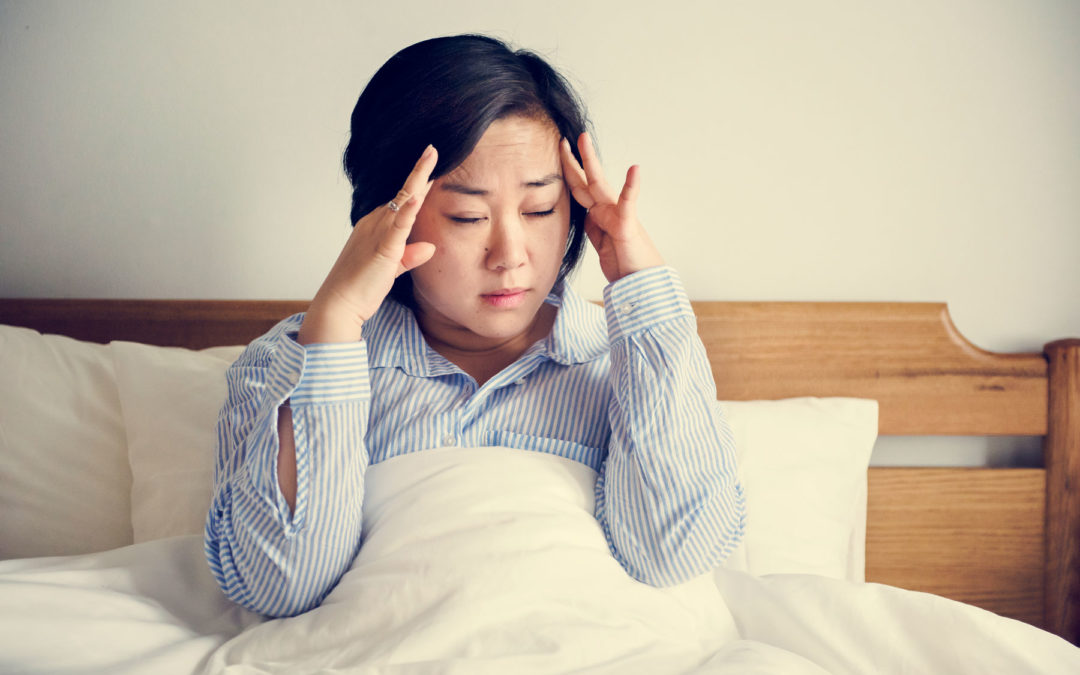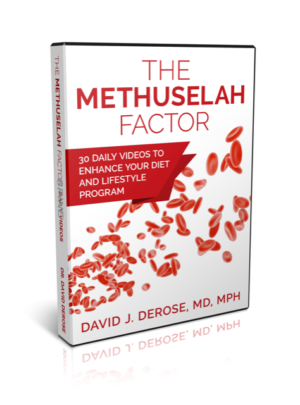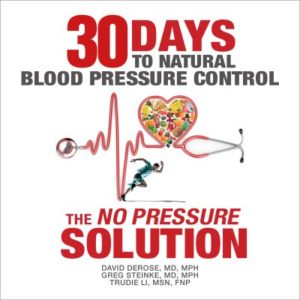Migraines and Headaches
Headaches represent only a minor nuisance for many Americans, occasionally causing slight discomfort. For others, migraines define the way they live. Thirty-eight million Americans suffer from severe headaches, also known as migraines. Unlike minor headaches, migraines cause severe discomfort, often inflicting excruciating pain. In fact, according to the National Institute of Neurological Disorders and Stroke, more than fifty percent of people miss work or can’t function normally during a migraine attack.[1] It’s safe to say that migraines are a serious issue, but what causes them?
It is believed that migraines are brought on by changes in brain activity which trigger physical reactions in the nervous and circulatory systems. Unfortunately, the exact cause of migraines is still largely unknown. However, many things seem to trigger them. Medication, lack of sleep, and diet seem to hold much of the responsibility.
Whether you suffer from minor headaches or severe migraines, there is some good news. There are things that you can do to reduce your chances of developing migraines, as well as methods to help deal with them when they occur. Over the following few paragraphs, we will look at some of the common headache triggers that can be avoided as well as treatments for headaches should you get one.
Migraine and Headache Triggers
Medication
Perhaps the most common cause of headaches is medication. Numerous medications list headaches as one of their side effects. If you are taking medications and are also experiencing migraines, talk with your doctor to see if there could be a connection. If there is, work with your healthcare provider to see if there is something that can be done to resolve it. Often a different medication or even changing the time a drug is taken can positively affect the occurrence and severity of migraines.
Insomnia
While not quite as common as prescription drugs, lack of sleep can be a significant cause of headaches. For years, the exact reason sleep denervation caused headaches was largely unknown. However, new research seems to answer some questions about why a lack of sleep can trigger migraines. Paul Durham, Ph.D., and colleagues found that sleep deprivation caused increased expression of proteins p38 and PKA[2]. These proteins help regulate sensory response in facial nerves and are thought to play a key role in migraines, known as the trigeminal nerves. Experts recommend getting at least seven hours of sleep each night to avoid problems associated with insomnia. Refer to our sleep hygiene handout for more information about sleep and ways to improve it. LINK HERE?
Caffeine
In addition to medication and sleep deprivation, what we eat and drink can play a role in developing headaches. One of the most common dietary headache triggers is caffeine. Because some individuals are more sensitive to caffeine than others, it can be hard to know whether you are personally sensitive to caffeine-induced headaches. One possible clue is if headaches tend to occur when you decrease your caffeine consumption. In this event, there could be a connection. Experts believe many people have headaches that are perpetuated by caffeine consumption. While caffeine can cause headaches, ceasing consumption “cold turkey” can provoke caffeine withdrawal headaches of its own[3]. Because of this, some people find it better to limit their caffeine intake or taper off gradually rather than stop entirely or abruptly. However, it should be noted that people sensitive to caffeine appear to do best by making a clean break with all caffeine-containing beverages. Despite the discomfort, most people find it is easier to address their habit with abrupt cessation rather than tapering their consumption. (Tapering off caffeine may also result in headaches, thus ultimately protracting the withdrawal process.)
Chocolate
In addition to caffeine, there are other common dietary triggers for migraines. The first one that we will consider is chocolate. This delicious substance contains small amounts of caffeine and the amino acid tyramine that trigger headaches. Even though chocolate contains less caffeine than coffee or other sources, it has still been linked to headaches. There is some debate whether chocolate has a correlation or causation relationship with headaches. Meaning, chocolate might trigger headaches (causation), or it might be consumed at greater frequency when people are stressed or undergoing hormonal changes (correlation), which themselves trigger headaches. Despite this debate, there is wisdom in avoiding or limiting chocolate consumption to determine whether it could be affecting your migraines.
Alcohol
Alcohol is another common cause of headaches. A long night of drinking is calculated to cause a headache for almost anyone; however, even a tiny sip of alcohol can trigger headaches in those who are particularly sensitive. It seems that alcohol can trigger two different types of headaches: a rapid migraine attack within a few hours or a delayed hangover headache. All alcoholic drinks can induce migraines; however, red wine seems particularly triggering for some. Because alcohol is connected to many health issues, including migraines, it is healthiest to limit or refrain from its use altogether.
Food Additives
A discussion of headache triggers would not be complete without mentioning food additives. Unfortunately, there are many chemicals and substances added to processed foods, the effects of which are not fully known. We will, however, look at three common food additives that have been identified as migraine triggers. MSG (monosodium glutamate), nitrates and nitrites, and aspartame have all been connected to headaches. MSG is found in soy sauce, meat tenderizers, and other processed food. The research is still coming together about how MSG causes headaches, but there is evidence that it can be a trigger. It can be avoided by carefully checking ingredient lists on processed food. Nitrates and nitrites are found in many cured and processed meats and release nitric oxide into the blood. These additives can cause vasodilation which, for some, can trigger headaches[4]. Aspartame is an artificial sweetener that seems to be linked to headaches. Hundreds of times sweeter than sugar, this additive can be found in chewing gum and certain drinks.
Cheese
It may come as a disappointment to learn that cheese can trigger migraines and headaches. Cheese contains tyramine, a naturally occurring compound that can trigger migraines. It is thought that aged cheeses contain more significant amounts of tyramine and thus are more likely to trigger a migraine. Blue, Swiss, Mozzarella, Brie, and Cheddar are examples of such cheeses. Like alcohol, cheese is not exactly a healthy food. Hight fat, cholesterol, and other chemicals in cheese have been connected to other health issues in addition to migraines. Considering this, individuals would do well to limit their usage as far as possible.
Other Dietary Triggers
There are many other less common dietary headache triggers in addition to the ones we have already looked at. Therefore, one approach involves a caffeine-free vegetarian diet that excludes onions, corn, citrus fruits, bananas, cultured dairy products (yogurt and kefir), tomatoes, and nuts. Some of the foods on this list might come as a surprise because they are considered natural, healthy foods. Because of this, it is essential to understand that even if a particular food or substance is a migraine trigger for some, it is not necessarily harmful to others. Migraine triggers vary from person to person and often must be considered individually. The good news is that you can likely find some relief from your migraines by taking inventory of your diet and lifestyle choices and choosing a strategy for your personal needs. Suppose your headaches occur a couple of times per week. In that case, likely, any effective regimen (medication, sleep, and diet adjustment) would be met with noticeable improvement within a month.
Migraine and Headache Treatments
Hydrotherapy Possibilities
Could something as simple as water offer relief from a spitting headache? The answer is yes. In addition to hydration (also important to headache prevention), water can be used therapeutically to treat migraines. Hydrotherapy (water therapy) has been employed for thousands of years by people all over the earth. It is important to note that there are separate hydrotherapy strategies for muscle tension and migraine headaches. As their name indicates, muscle tension headaches are caused by contractions and tension in the head, neck, shoulders, and upper back muscles. Heat applied (via a towel soaked in hot water) to the neck muscles often helps muscle tension headaches by relaxing the muscles. (Note: stretching and neck exercises can also help with neck muscle tension—a predisposing factor for muscle contraction headaches.)
Migraine headaches are different from muscle tension headaches and have their own treatment. The standard hydrotherapy for a migraine (vascular) headache is ice to the head and neck coupled with heat to the feet and legs (applied as either a hot foot bath or a hot half bath—bathing in warm water up to the waist). This strategy pulls blood away from the head and provides much-needed relief.
Exercise
Upon developing a migraine, your first instinct might not be to go for a run. And rightly so—because it seems that exercise can be a double-edged sword when it comes to migraines and headaches. When it comes to physical exercise, a daily exercise program can sometimes significantly decrease muscle tension headaches. However, it is not a good time to engage in physical exercise during a migraine attack as it can worsen it.
Herb and Medication Options
Many people are skeptical of herbs and natural treatments. While many scams and false claims are made regarding herbs, some seem to offer help for specific ailments. When it comes to migraines, many people report the consistent use of feverfew staves off migraine headaches (note: capsules are often better tolerated than tea). Peppermint, ginger, and coriander seed also seem to help some people. While there is limited research to support the use of some of these herbs, they may help some people with migraine symptoms. It is important to note that you should consult your healthcare provider before changing your diet or supplement intake.
For individuals with several migraines, prophylactic (preventive) medications are another option. These drugs are taken daily to prevent the occurrence of headaches. Standard medications employed are calcium-channel blockers, beta-blockers, and tricyclic agents. Some individuals may find particular advantages to low-dose amitriptyline, which features muscle relaxant, sedative, and antimigraine properties[5]. Because prescription medications often carry adverse side effects, many find it best to look at them as a last resort. Remember, it is imperative to consult your healthcare provider before making any changes to your medication intake.
Summary
Migraines and headaches present a significant issue for many of us each day. Thankfully, we have learned that we can reduce migraine occurrence and treat them when they present themselves by making conscious choices regarding lifestyle. Medical science has not yet found a way to cure headaches completely. However, by carefully evaluating our medications, diet, and lifestyle, we can cut out many of the triggers that bring on migraines.
[1] http://www.ninds.nih.gov/doctors/OP129A_Clinician_fa.pdf
[2] https://www.webmd.com/sleep-disorders/news/20100624/lack-of-sleep-triggers-migraine-proteins#1
[3] https://americanmigrainefoundation.org/resource-library/caffeine-and-migraine/
[4] https://journals.sagepub.com/doi/10.1111/j.1468-2982.2009.01964.x
[5] This, as well as the other uncited content, are By David J. DeRose, MD, MPH, and were prepared for the Three Angels Broadcasting Network’s Health for a Lifetime
Taped December 2005




